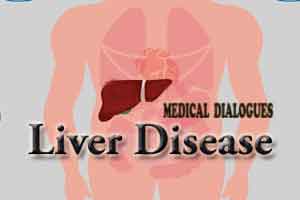- Home
- Editorial
- News
- Practice Guidelines
- Anesthesiology Guidelines
- Cancer Guidelines
- Cardiac Sciences Guidelines
- Critical Care Guidelines
- Dentistry Guidelines
- Dermatology Guidelines
- Diabetes and Endo Guidelines
- Diagnostics Guidelines
- ENT Guidelines
- Featured Practice Guidelines
- Gastroenterology Guidelines
- Geriatrics Guidelines
- Medicine Guidelines
- Nephrology Guidelines
- Neurosciences Guidelines
- Obs and Gynae Guidelines
- Ophthalmology Guidelines
- Orthopaedics Guidelines
- Paediatrics Guidelines
- Psychiatry Guidelines
- Pulmonology Guidelines
- Radiology Guidelines
- Surgery Guidelines
- Urology Guidelines
Overweight teenagers at higher risk of liver diseases later

London : Being overweight during adolescence can put men at significantly higher risk of developing severe liver disease later in life, says a study.
The findings are based on 40 years follow-up of study of nearly 45,000 Swedish men.
The study showed that adolescent males with a body mass index (BMI) above 25 are at a 64 per cent increased risk of developing severe liver diseases and liver cell cancer in their late lives.
Even for one kg/m2 increase in BMI, obese males can face a five per cent increased risk, the study said.
"It is possible that this increased risk is caused by a longer exposure to being overweight, compared to becoming overweight or obese later in life and that individuals with a longer history of being overweight have an increased risk of severe liver disease," said lead investigator Hannes Hagstrom from Karolinska University in Sweden.
In addition, overweight and obesity are associated with a worse prognosis in several liver diseases, such as non-alcoholic fatty liver disease (NAFLD), hepatitis B and C as well as alcoholic liver disease.
The increased risk of a high BMI for the development of severe liver disease later in life is already present from an early age, commented the researchers.
"The increased prevalence of overweight and obesity has also contributed to the worldwide rise in liver diseases," Hagstrom added.
It has been estimated that if current trends continue, there will be more than two billion overweight and over one billion obese individuals worldwide by 2030, said the paper published in the Journal of Hepatology.
The researchers examined approximately 45,000 Swedish men, over a period of 40 years, to investigate if the body mass index (BMI) in adolescence developed severe liver diseases in later life.
The results of the follow-up revealed 393 men diagnosed with severe liver diseases and being overweight was a risk factor for developing severe liver disease after adjusting for a variety of confounding factors, including alcohol and tobacco.

Disclaimer: This site is primarily intended for healthcare professionals. Any content/information on this website does not replace the advice of medical and/or health professionals and should not be construed as medical/diagnostic advice/endorsement or prescription. Use of this site is subject to our terms of use, privacy policy, advertisement policy. © 2020 Minerva Medical Treatment Pvt Ltd